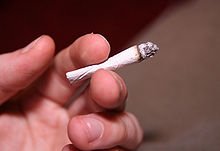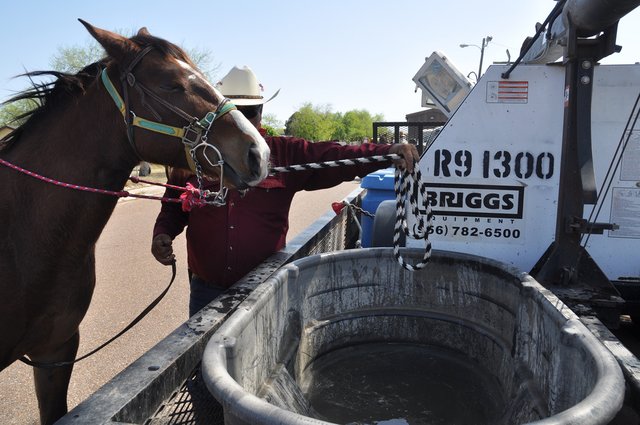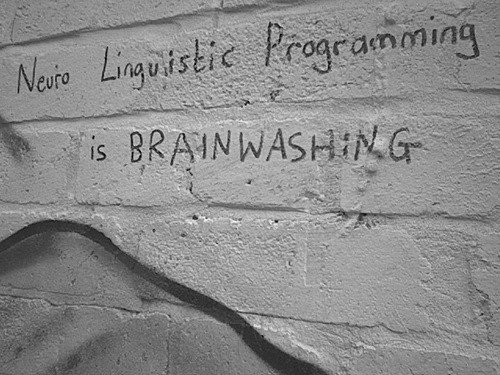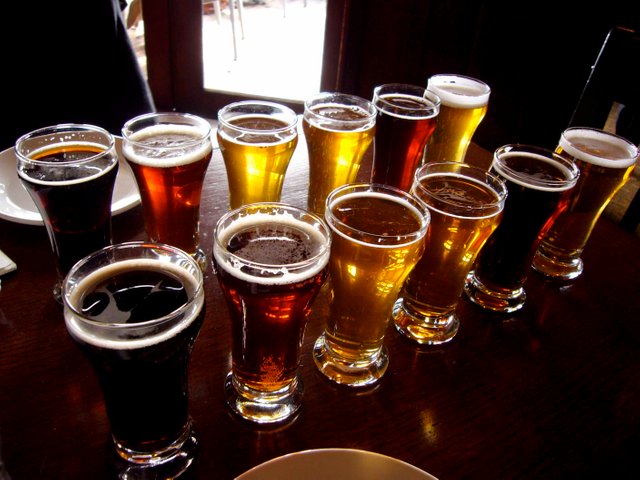I had started smoking when I was around 15. I definitely started smoking for the cool factor, because everyone in my social group was older than me and smoked. It went off and on for a few years, as I suspect is the case for most smokers. By the time I stopped I think I had been smoking a cumulative 60-70% of about 9 years.
Jeez. That’s really long.
I had stopped a few times for quite a long time, but as soon as I got to a new situation or location, the stress of it would bring me to smoke again.
Around the time I stopped parts of my life were super stressful (the long distance relationship I was in was falling apart because I was a liar and a cheat) and I realised that I was smoking more. I also, embarrassingly, noticed that my erections weren’t quite what they used to be, even though I was technically in the prime of my youth. (This wasn’t just from the smoking, and probably had a lot more to do with my psychological state I was in at the time. Guilt can be a boner-killer. )
I definitely noticed that I was smoking more. I was becoming more aware of it. Because I was rolling cigarettes, my fingers were always tinged yellow-brown, even when I tried to switch hands all the time, and they smelled of nicotine. If my fingers came to my face, I would be reminded of smoking. I managed my breath by always having half a sugar free fisherman’s friend after a cigarette, or smoking with a mint in my mouth. Although this made my breath feel fine to myself, I know that my hair and skin and clothes would still smell right after a smoked a cigarette. If I didn’t have a mint, the cigarette taste in my mouth would get me to try and wash out my mouth with water. I noticed that I was smoking more and more and it bothered me. I think a lot of smokers aren’t really aware of their smoking.

During those last months, I tried to cut back, to stop cold turkey, to stop buying cigarettes or tobacco. Everyone knows that smoking is bad for you. Most people just feel like the “benefit” they get from smoking outweighs the harm. Nothing worked for me. I got kind of desperate. I knew I wanted to stop, but the drive to smoke felt ridiculously strong. If I didn’t buy cigarette, I would bum them off my friends, or when no one was looking, take the half-smoked cigarettes from the big ashtrays outside the university buildings. I feel embarrassed just thinking about it.
Somehow, I heard about a book. I think it probably came from just googling ways to stop smoking (I’m pretty sure I tried some youtube self-hypnosis videos). I found the book online, “The Easy Way to Stop Smoking” by Allen Carr, and downloaded it immediately to my e-reader.
I think I read it within a single day, and I haven’t touched a cigarette since. The almost instantaneous effect of the book was to replace the negative feeling of craving a cigarette with a positive feeling of accomplishment and success at resisting the urge. Basically every time I used to think “Stress, time for a cigarette…” I now thought “Hey! I’m not smoking anymore! Wow! How crazy is that?”
After reading this book, I tried to force it on other people as “The Cure” for smoking, and was amazed that most people didn’t want to read it, “If I read that book I might stop, and I don’t want to stop”, or they would start and not finish, or would read it and go right back to smoking. I didn’t understand. How could this not have worked for them? This was to be one of my first lessons in not being able to change people. You hear proverbs all the time, but never really internalise them. The one about horses and water is probably most appropriate for this case. And elements of the backfire effect (see Part 1) certainly apply too.

Why did it not work? That’s a tough one, but now if I end up talking about the book I always say: “You have to be desperate. You have to really want to stop, to have tried to stop. It will only work if you want to stop, but if you do, it’ll work almost instantaneously.” The book can also never be gifted to anyone, unless they ask for it. You can’t force change on people.
I had stopped smoking before, twice for more than a year, but I knew immediately that this time was different. Before I had either been smoking or not smoking. Now, I was distinctly aware of not smoking, and enjoying it.
The book, through a mix of neurolinguistic programming and guided awareness, had made me “mindful” of smoking. Now I have a word for it. Back then it was just a new outlook or perspective. I was thinking about smoking, as a concept, differently.

But this new way of thinking was dangerous, almost infectious, because a couple of weeks later I started noticing something else: I was drinking more. I realised later that whatever root cause that drove me to smoke was still there, and now it had co-opted drinking. Without smoking as a social crutch, I was drinking more. I noticed initially because I had thought stopping smoking would also save me some money. Instead I realised I was spending more when I went out with friends. On beer (usually) and although my tolerance did its best to keep up, I was getting drunk more regularly.
Keep in mind that I other parts of my life were also falling apart, and so I switched to “party mode” to try to ignore them. But no one around me would have noticed that I was drinking more than usual. I was in fact still drinking less than most of my friends and no one would have even associated me with any common notion of an alcoholic (see note below).
As with smoking, I also found myself trying to cut down on drinking. One beer per evening while going out to a bar, or club, or other social event. That would work if I stayed out half an hour. It did not work for a whole evening. If I forced myself to just have one beer, I would not stay out long, because I wasn’t enjoying myself, and then the FOMO would get really bad. If only there was a way…

And there was. What a surprise it was to find out that Allen Carr had also written “Easy way to control alcohol.” This book was remarkably similar to the first one. It points out the underlying thoughts that drive you when you feel like having a beer, and lets you identify your own cues and triggers.
[Now an important note: Allen Carr does not believe in the word “Alcoholic”, at least not in the sense of differentiating between alcohol dependency and alcohol abuse. I think he would say that there is a spectrum between drinking zero and drinking infinity and everyone falls into it. There is no amount (i.e. 6 units per week) that lets you draw a neat line between alcoholics and “normal drinkers”. Similarly I think he would say that drinking of alcohol will always lead to some problems, and saying that some arbitrary magnitude of problem makes you an alcoholic is also unreasonable. I’m not saying this to stoke controversy; maybe the books and the methodology warrant their own review. Ask me for it if you’re interested. ]
Back to the point: I think the “control alcohol” part of that title is a lie. Since reading that book, I haven’t drunk any alcohol recreationally. I cannot imagine someone could read that book, internalize it and keep drinking. The same way someone couldn’t just smoke one cigarette a day. (I have on occasion had a sip of champagne or sparkly wine if there was a birthday or some celebration. Sometimes I would actually drink a mouthful, but other times I spat back into the glass. In Some cases it’s just more important to be polite. I have also had people press their grandmother’s homemade herb or nut or fruit liqueur on me, in which case I would (to much dismay) stick my finger in it, lick my finger and pronounce the drink horrible.)
I think I’ll leave the specifics of stopping drinking to another article, since this series is supposed to be about meditation. But the effects of not drinking changed my life in a very profound ways. I realised I didn’t like most of my friends. I noticed that unless I was drunk or getting drunk they weren’t funny or fun to be around. I noticed that I loved dancing, but hated it if the music was not right. I wasn’t half as confident as I thought I was, especially when it came to approaching and flirting with women. I had used alcohol as a crutch, and had been completely unaware of a part of myself.
This introspection, this noticing had become infectious and I realised there were many things I didn’t know about myself, and other things I did not like about myself.
I had also become obsessed by the methodology used by Allen Carr in his books. Although I realised that it wouldn’t work or everyone, it definitely worked for me. I had found a book that changed my life immediately. Twice.
It would, unfortunately, not work a third time. The root cause of why I had smoked, and why I drank was still there, and “The easy way to stop worrying” did not help me.
I wasn’t happy.
Part 3: Trying to solve life’s problems with books and finally finding one that did (kind of).
You fixed yourself, the book was a tool to help you, well done and well written.
Downvoting a post can decrease pending rewards and make it less visible. Common reasons:
Submit